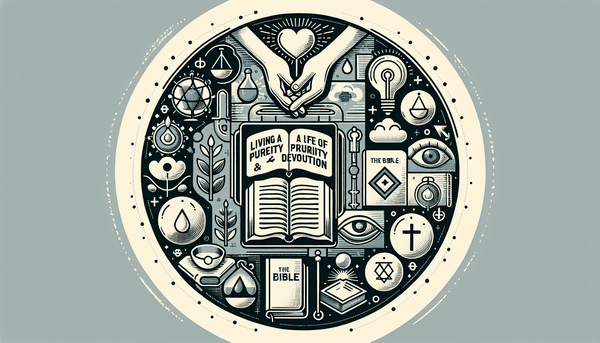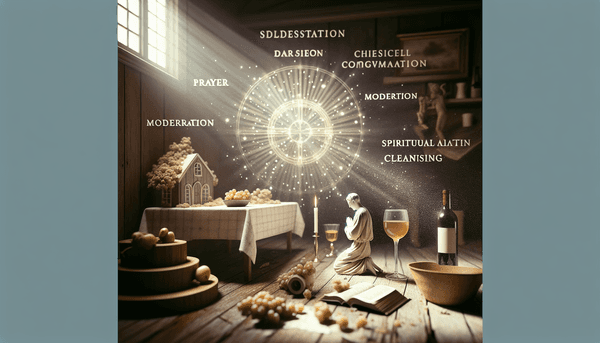Upholding Biblical Principles in Modern Times
The Bible teaches us to embody purity, respect, and modesty in all facets of our lives. Ephesians 5:3 instructs us that 'there must not be even a hint of sexual immorality, or of any kind of impurity, or of greed, because these are improper for God's holy people.' In today's digital age, the question of sending nude images can arise, but such actions conflict with the Biblical call to modest living. The Bible doesn't address the modern concept of 'nudes' directly, but principles of modesty and purity are clear in verses like 1 Timothy 2:9-10, which urges women to 'dress modestly, with decency and propriety.' Such scriptures guide us to focus on inner beauty and good deeds, steering clear of outward appearances that may lead to sin. Other verses, such as 1 Thessalonians 4:3-4, 1 Corinthians 6:18-20, and Matthew 5:28, further emphasize the need for sexual purity and respect for our bodies as temples of the Holy Spirit.
Embracing the Mystery of God's Knowledge
There are moments in life when we face situations that are beyond our understanding, prompting us to acknowledge that 'only God knows.' This humble admission is supported by Isaiah 55:8-9, which reminds us that God's thoughts and ways are far beyond our own. As we encounter life's mysteries, it is a comfort to trust in the sovereignty of God, knowing that His wisdom is infinite. Such trust is echoed in scriptures like Proverbs 3:5-6, which encourages us to rely not on our own insight but on God's. The depth of God's knowledge and His ability to bring light to the darkness is celebrated in verses such as Romans 11:33-34 and Daniel 2:22. By recognizing the limits of our comprehension and placing our trust in God's omniscience, we can find peace and guidance.
The Significance of Levitical Offerings
The book of Leviticus may seem distant to the modern reader, but it holds significant insights into the nature of worship and sacrifice. The burnt offering, described in Leviticus 1:9 as 'a pleasing aroma to the Lord,' symbolizes complete devotion to God. Similarly, Leviticus 3:16 emphasizes that 'all the fat is the Lord's,' pointing to God's sovereignty over the best portions of our lives. The sin offering in Leviticus 4:20 illustrates the process of atonement and the importance of seeking forgiveness. These offerings are shadows of the ultimate sacrifice Jesus made, as referenced in Hebrews 10:1-4, which fulfilled the need for such rituals and opened a new covenant between God and humanity.
Conclusion
As we reflect on the teachings of the Bible, we are reminded of the timeless relevance of its wisdom in our lives. Whether it's in maintaining purity, trusting in God's greater knowledge, or understanding the deep symbolism of the Levitical offerings, scripture guides us towards a life that honors God. The journey of faith is one of constant learning and growth, and as we move forward, may we continue to seek the divine wisdom that enlightens our path and draws us closer to the heart of God. Let this exploration of Biblical insights serve as an invitation to delve deeper into the Word, allowing it to transform us from within.
FAQ
Q: What does the Bible say about nudes?
A: While the Bible does not mention nudes directly, it emphasizes modesty and purity in our actions and thoughts. The scriptures encourage us to dress modestly and focus on inner beauty and good deeds rather than outward appearance, as highlighted in 1 Timothy 2:9-10.
Q: Is it okay to say 'only God knows'?
A: Yes, it is appropriate to say 'only God knows' in situations where we are unable to fully understand or comprehend something. This phrase acknowledges the infinite wisdom and knowledge of God, as stated in Isaiah 55:8-9.
Q: What is the most important verse in Leviticus 1?
A: The most important verse in Leviticus 1 is likely verse 9, which describes the burnt offering as a 'pleasing aroma to the Lord,' highlighting the significance of complete devotion to Him.
Q: What is the most important verse in Leviticus 3?
A: One of the important verses in Leviticus 3 is verse 16, which states that 'all the fat is the Lord's,' emphasizing the act of offering the best portions to God.






